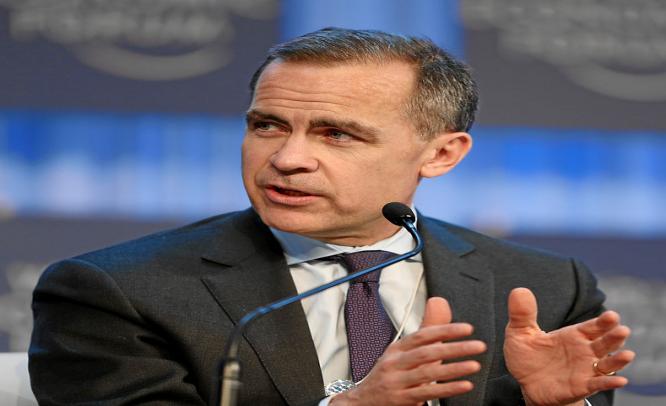The BoE is following the Federal Reserve in a dramatic shift that links interest rates to unemployment, a signal to the markets of what it will take to push rates higher.
August 13, 2013 : Taking a cue out of the Fed, Bank of England (BoE) Governor Mark Carney said the bank will not consider raising interest rates until the jobless rate has fallen to 7 percent or below. Mr. Carney expected this would require the creation of about 750,000 jobs and could take three years. Addressing media persons in a press conference, his first, since taking over as the Governor of British Central Bank, Carney said “We need to provide as much clarity and as much certainty about the path of monetary policy”. The BoE is following the Federal Reserve in a dramatic shift that links interest rates to unemployment, a signal to the markets of what it will take to push rates higher. The BoE’s plans to hold its benchmark rate at 0.5 percent until the country’s unemployment which currently stands at 7.8 percent eases to 7 percent. Mr. Carney said the 7 percent unemployment level figure was not a target but a point at which the Bank of England would re-examine interest rates.
The shift puts the BoE in lines of the U.S. Central Bank, which has pledged to hold its policy rate at near zero until unemployment falls to 6.5 percent. This “forward guidance” comes at a time in a post crisis era marked by high unemployment and aggressive stimulus measures by central banks. It is meant to given markets certain benchmarks beyond traditional inflation targets. The BoE may however act if there are signs of inflation moving higher than 2.5 percent within two years or if financial stability is threatened. But for the most part, Mr. Carney wants Britons to know exactly what it will take to get the central bank’s monetary committee or MPC to consider raising rates.
Not Reached Escape Velocity
Britain, like other countries has embarked on a massive stimulus program to counter a growth deficit by pushing interest rates to record lows and pumping 363 million pounds or $ 605 billion into the economy through quantitative easing (Q.E). The quantitative easing program may continue, although the British economy is strengthening, the recovery is weak by historical standards. While Carney has increased the central bank’s forecast for annual growth, the MPC still expects growth to be 2.4 percent by 2015, “a rate still a little below its historical average” he said. Carney, who does not have “Veto” powers in the monetary policy committee, is enjoying the support of new members who voted for it at their meeting this week, the total votes polled and the minutes of the meeting will not be revealed until next week.
The move by Carney dubbed the as “the greatest banker of his generation” by Chancellor Osborne is the biggest since Mark Carney became governor on July 1st. The Canadian born economist has also introduced a slew of measures including changes in some of the bank’s operations and introduced longer explanations for monetary policy decisions.
The FTSE 100 index rose immediately after Carney’s statement, but fell back as investors read the full report, it fell 93 points or 1.4 percent to close at 6,511.21.
Shadows chancellor Ed Balls welcomed the decision but warned the MPC need to be vigilant to inflationary risks, but pressure group Save our Savers expressed “dismay”, saying it would cause further hardship for savers and pensioners, while continuing to favor borrowing at the expense of saving.

